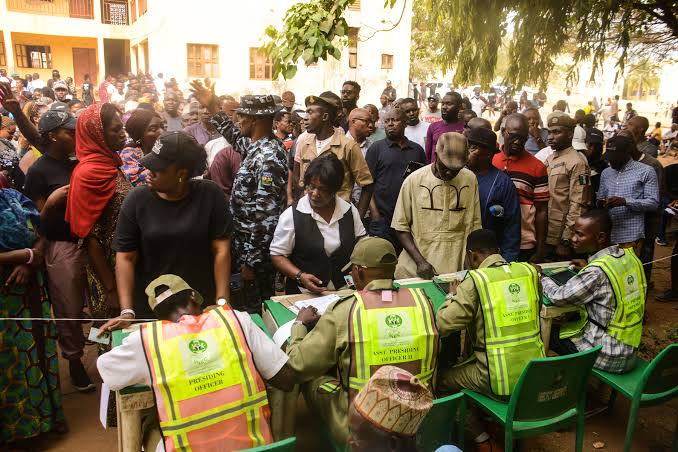BVAS’ failure, insufficient electoral materials disenfranchised electorates in Kwara
Belawu Obalowu, 63, has been participating in Nigerian elections for over two decades. Just like every other time in the past, she was eager to vote for the candidates of her choice on February 25.
Not aware of the issues ahead, she went to her Polling Unit 016 (Ode Oyan) of Ajikobi ward, Ilorin, very early. Despite her age, she was willing to dedicate the entire day to the exercise.
At first, the BVAS (Bimodal Voter Accreditation System)—an electronic device designed to read Permanent Voter Cards (PVCs) and authenticate voters before voting—seemed inconsequential to her as she brewed over her long experience of participating in voting exercise.
“The February 25 Presidential and National Assembly elections were supposed to be the third time I would use my PVC to vote. I have been participating in elections for over 20 years now,” she said.
While the BVAS machine worked perfectly well for some people, for her and a few others, it was a nightmare.
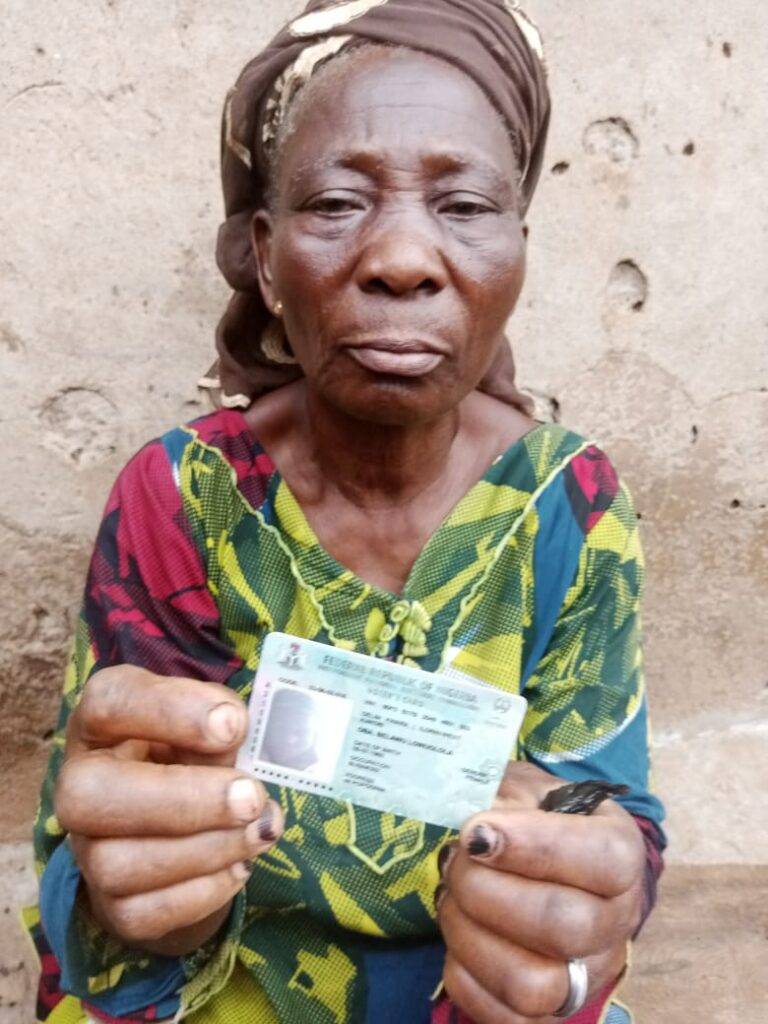
She said, “I went to my polling unit as early as possible, after my fingers were placed on the BVAS machine and my face scanned, I was told my picture doesn’t appear and there was no way I could vote.
“They tried the accreditation process again three more times, but the problem persists. I can’t tell why the machine that is supposed to help the process ended up disenfranchising us. It’s very painful,” she narrated.
For Adama Lawal Olola, who lives in the same compound as Belawu, it was also a sad tale as she narrated her experience.
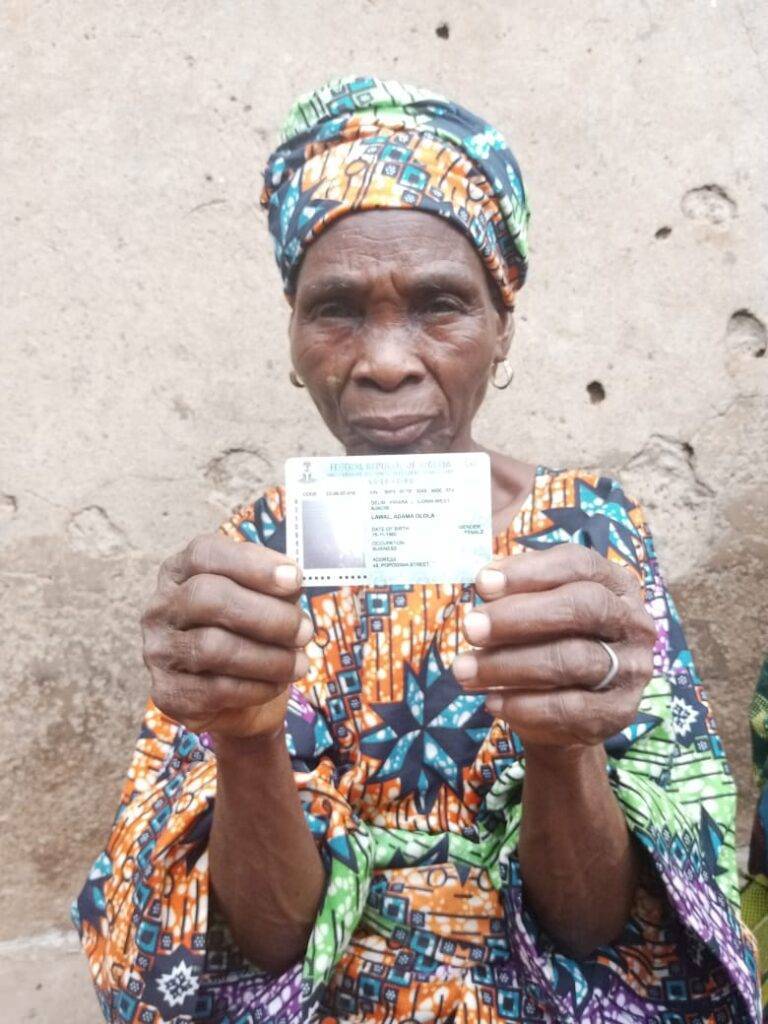
“We put our hands on the BVAS three times and it failed to show our picture. About three of us in this compound alone. We left home very early just after observing Subhi (the Muslim morning prayer),” she said. “We were actually confused and don’t know what to do. Eventually, we were not able to exercise our civic rights.”
“We’ll like to appeal to them to help us to do something about it so that we will be able to vote during the gubernatorial poll,” she said.
“It was really painful for me. I went there three times and the machine still failed to accredit me,” lamented another 59-year-old voter, Bello Obalowu Airatu, who was disenfranchised.
Gubernatorial election – We may not vote
Reeling from the debacle that blew their rights away, the trio – Belawu Obalowu, Adama Olola and Bello Obalowu Airatu said they are still undecided if they will go out to vote during the gubernatorial elections.
Belawu quipped, “We can’t put our fate in BVAS again and for now we can’t even subject ourselves to another round of uncertainty by going to vote in the gubernatorial and state assembly elections. We may and may not go there on Saturday.”
At least 100 voters disenfranchised after INEC failed to provide enough ballot papers
It was another case of negligence and dereliction of duty as INEC failed to provide enough ballot papers for voters at Ode Kajola polling unit 051 of Alanamu ward. The commission only allocated 82 ballot papers to a polling unit of over 180 electorates, consequently preventing over 100 electorates from voting.
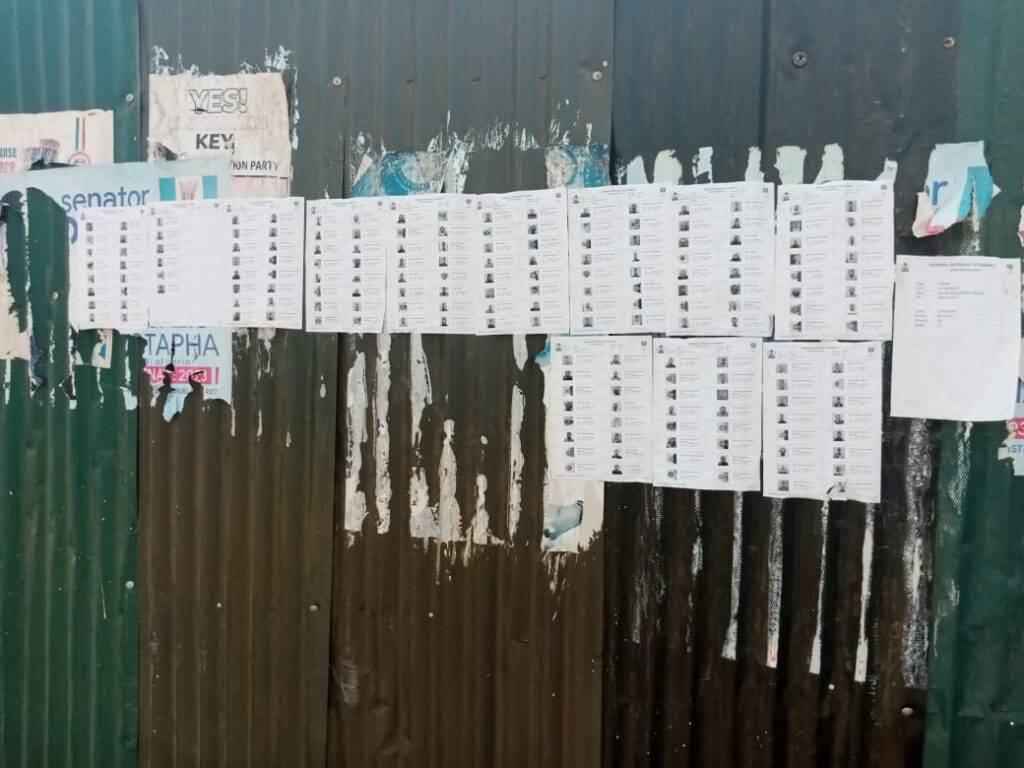
Confirming the development, Lukman Isiaka, Action Alliance (AA)’s Polling Unit Agent, said, “The electoral officials got to our polling unit very late. They came around 1 pm and we discovered that the ballot papers were not complete.
“The Presiding Officers had to separate the ballot papers by themselves because the INEC officials didn’t do it for them,” he said. “When we (party agents) asked them why the Ballot papers were not complete, they told us that those were the only ones given to them at the Registration Area Centre (RAC).”
Muhammed Zakariyau was among those who couldn’t vote due to insufficient ballot papers.
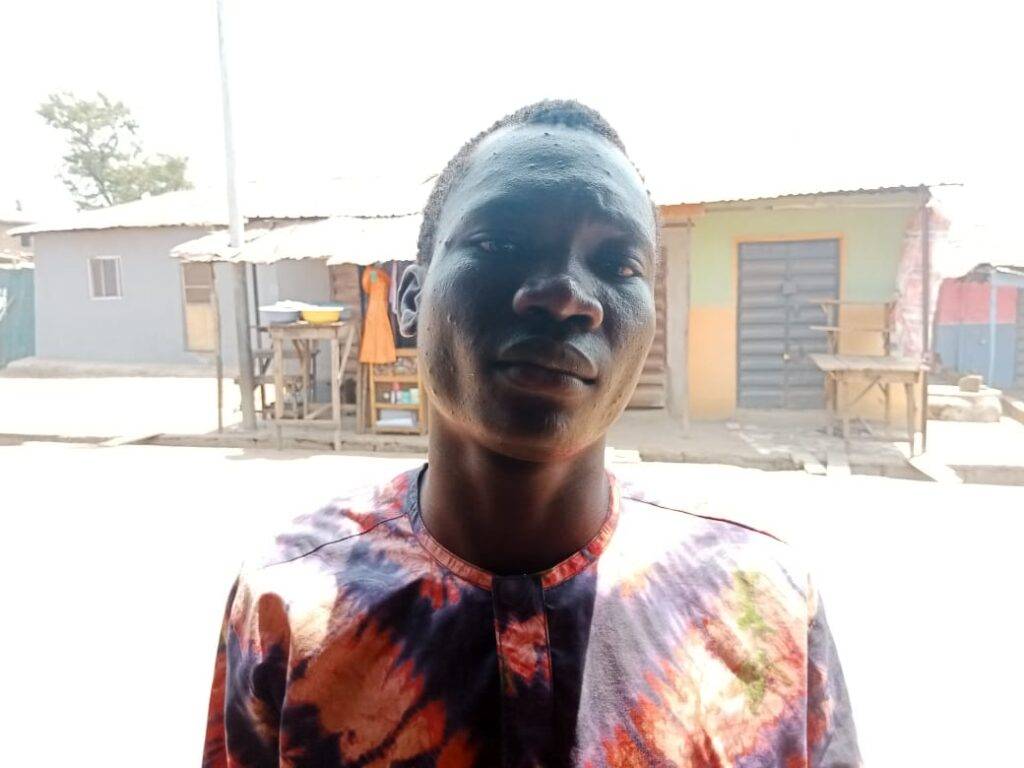
“I registered for my PVC in March last year. I came here around 10 am on election day to vote but was told that the ballot papers had finished. It’s very painful because I couldn’t vote,” he said.
Apart from inadequate ballot papers, The Informant247 also observed some discrepancies in the Polling Unit’s results sheet uploaded on the INEC election result portal, IREV.
The Polling Unit’s Presiding Officer, Abdulateef Isiaq Adebayo recorded 82 as the number of registered voters instead of the actual 182 on the voters list pasted at the Polling Unit.
In addition, he also misrepresented the total number of valid votes in the ballot papers and the number of unused ballot papers.
While he recorded 72 votes cast for the house of representatives, the officer noted in the result sheet that the number of unused ballot papers was 81, while the total number of used ballot papers was 10.
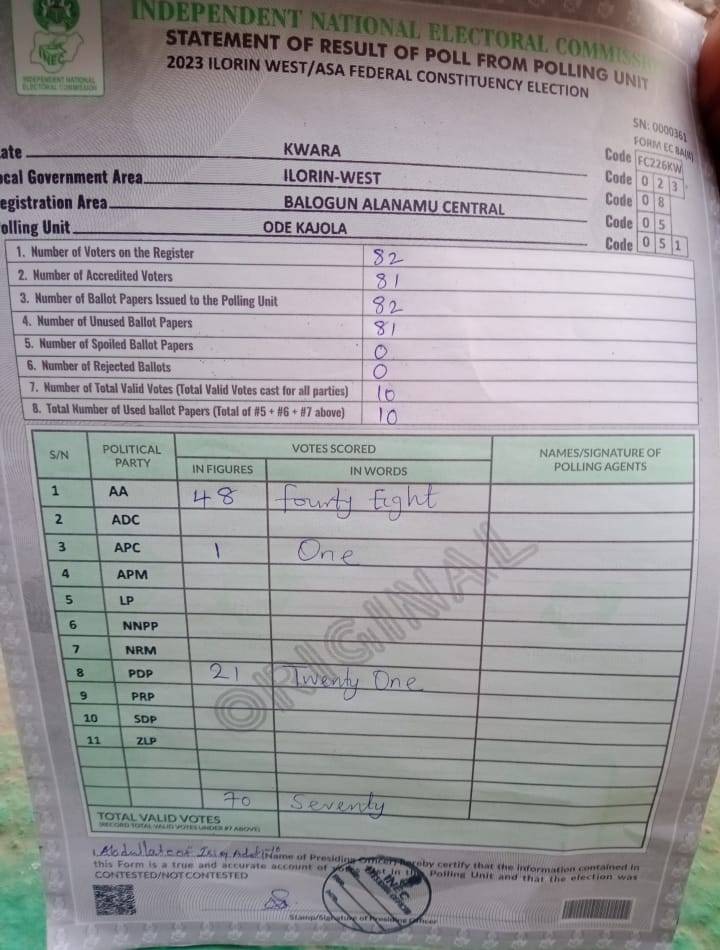
For the Senatorial election result sheet, the presiding officer recorded that the number of unused ballot papers was 81 and that of the total used ballot papers was 10 as against the number of votes recorded which was 68.
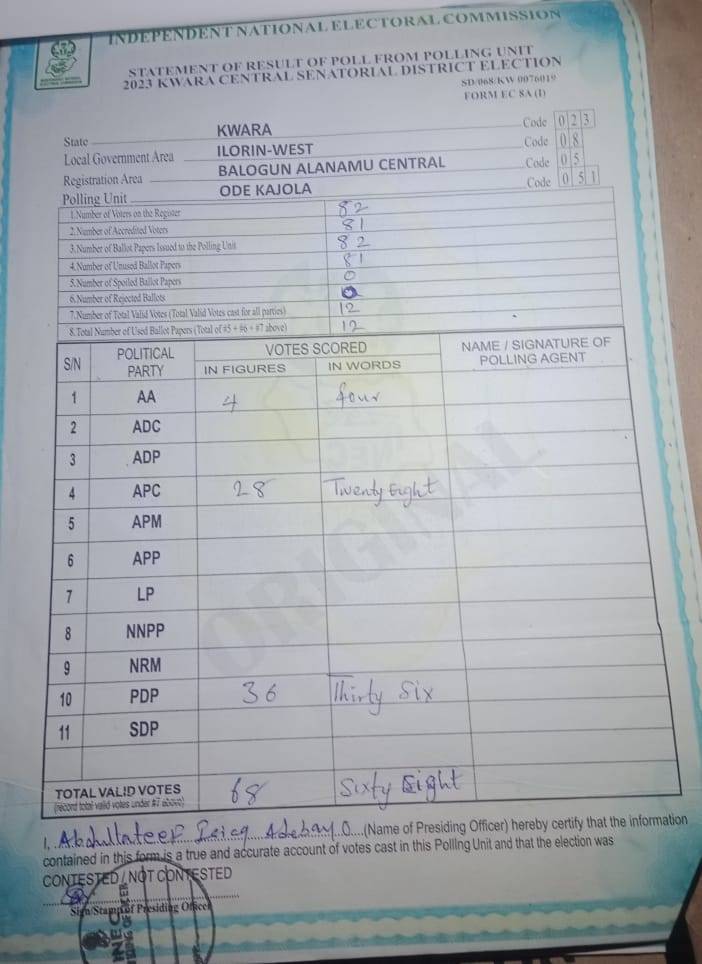
It was the same thread for the presidential election result sheet. While 55 votes were recorded as the votes cast, the presiding officer pegged the number of unused ballot papers at 81 and that of the total used ballot papers at 26.
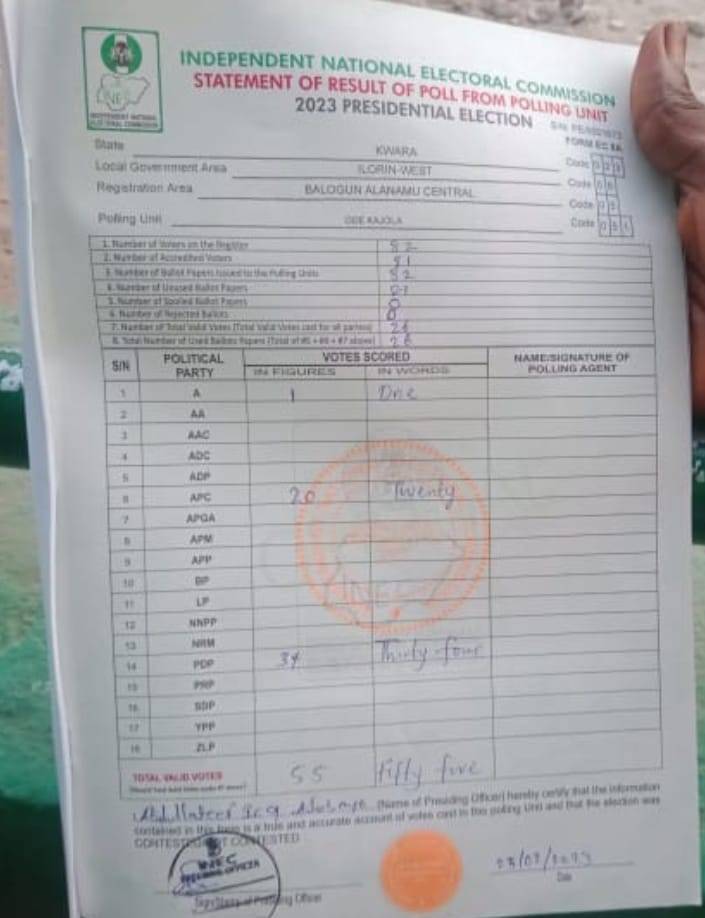
INEC reacts
When contacted, the Public relations officer of INEC in Kwara State, Ibrahim Bolaji claimed that he monitored the elections in some areas and wasn’t aware that some voters were disenfranchised due to BVAS’ failure to accredit them.
“Nobody gave me that report. So, if you want to get that, maybe you can go to Ilorin West local government electoral officer,” he said.
On the inadequate ballot papers at Ode Kajola, the INEC PRO argued that the political agents were present during the distribution of election materials at every stage from the Kwara State branch of the Central Bank of Nigeria (CBN).
“All the party agents were present during the distribution of the materials, so if the party agents observed at the polling unit that the ballot papers were not complete, they should complain through the appropriate channel,” he said.
This report was published with support from Civic Media Lab.

